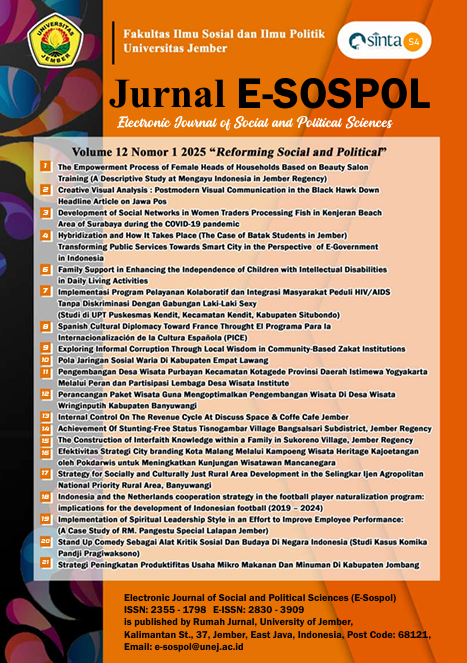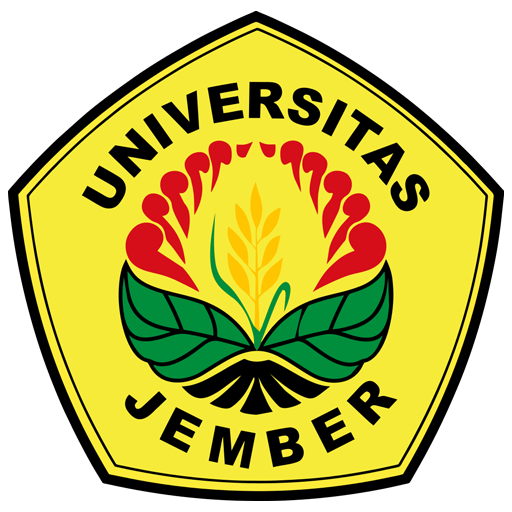Development of Social Networks in Women Traders Processing Fish in Kenjeran Beach Area of Surabaya during the COVID-19 pandemic
DOI:
https://doi.org/10.19184/e-sospol.v12i1.53700Abstract
During the COVID-19 pandemic a number of entertainment venues in the Kenjeran area were temporarily closed, so the number of tourists visiting the area decreased. The temporary closure resulted in fish processing traders to make marketing innovations through the development of social networks during the COVID-19 pandemic. The purpose of the study is to find out more about the development of social networks in female fish processing traders in the Kenjeran area during the
COVID-19 pandemic. Manuel Castells' network society theory was used as a research foundation. Research methods use qualitative research with interpretive approaches. Set social research on the development of social networks through digital media conducted by women traders processed fish to develop marketing in the COVID-19 pandemic. The study subjects were female traders processed fish in the Kenjeran area. Determination of informants by snowball technique. Data is obtained from primary data and secondary data. Data analysis techniques use data transcripts, data categorization, and conclusion withdrawal. The study found that digital media can be utilized by female fish processing traders to build and strengthen social networks during the COVID-19 pandemic. The existence of
limitations in outdoor movement restricts female traders processing fish to interact physically so as to utilize digital media to interact virtually. Digital media has an important role in maintaining fish processing MSMEs during the COVID-19 pandemic.
Downloads
Downloads
Published
Issue
Section
License
Penulis yang mengusulkan naskahnya untuk dapat diproses penerbitannya pada e-SOSPOL dianggap telah menyetujui beberapa hal sebagai berikut:
1. Penulis tidak dapat menarik naskah yang telah usulkan untuk diproses hingga mendapat jawaban dari Ketua Dewan Penyunting atas status naskah artikel ilmiahnya (diterima atau ditolak untuk diterbitkan).
2. Penerbit tidak bertanggung jawab terhadap kasus plagiasi atas artikel yang terbit pada e-SOSPOL
3. Penerbit tidak bertanggung jawab atas data dan isi dari artikel yang diterbitkan pada e-SOSPOL, dan sepenuhnya merupakan tanggung jawab penulis.







